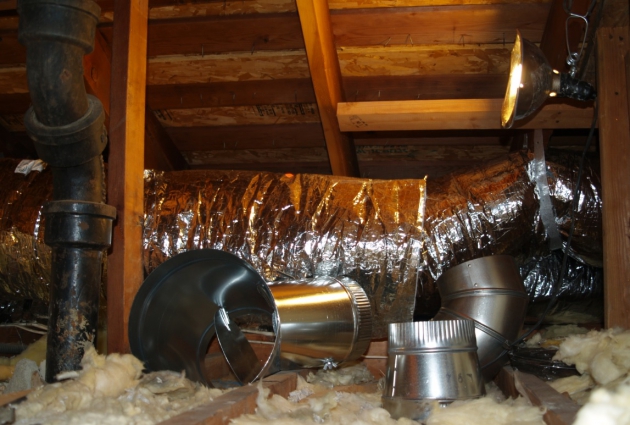Hot vs. Cold Markets: Sell at the Right Time

When selling your home, timing can be just as important as the price. Whether you’re facing financial challenges, relocating, or simply looking to move, understanding market conditions is crucial. The real estate market experiences fluctuations between hot and cold markets, and each offers unique opportunities and challenges for sellers. Knowing when to sell in these cycles can help you maximize your property value, attract the right buyers, and close the deal quickly.
What Are Hot and Cold Markets?
The terms “hot market” and “cold market” refer to the current state of the real estate market, which can shift based on various factors. Understanding these shifts can help you make informed decisions when selling your home.
A hot market occurs when demand for homes outstrips supply, leading to rising property values and competitive bidding among buyers. In a hot market, homes sell faster, often above asking price, and sellers have the upper hand. This is typically driven by low interest rates, economic growth, and strong buyer demand. In this environment, sellers can expect to sell their homes quickly with fewer negotiations and less effort spent on repairs or improvements. However, the competition is fierce, so it’s essential to price your home competitively and act fast to seize the opportunity.
On the other hand, a cold market occurs when there are fewer buyers, or the market is oversaturated with homes for sale. In a cold market, home values tend to stagnate or even decrease, and the selling process can be slower. Sellers may need to be more strategic with their pricing, marketing, and negotiations. A cold market is often influenced by economic downturns, rising interest rates, or other external factors that limit buyer purchasing power. In these conditions, sellers might need to lower their asking prices, offer incentives, or make home improvements to stand out.
Why Market Timing Is Important
Selling your home at the right time can make a world of difference in how much you earn and how quickly the process takes. The real estate market is heavily influenced by a variety of factors, including buyer demand, interest rates, and the local economy. By understanding these factors, sellers can adapt their strategies to either take advantage of a hot market or minimize losses in a cold market.
In hot markets, homes sell quickly, and sellers may not need to spend much time or money making repairs or improvements. However, setting the right price is still crucial, as overpricing can result in the property sitting on the market too long. In a cold market, sellers may have to be more patient and flexible, but they can still succeed by adjusting their strategy to meet buyer expectations and market conditions.
Factors That Influence Market Conditions
Several factors affect whether the market is hot or cold, and understanding them can help fsellers make informed decisions about the timing of their sale.
- Economic Conditions: The overall health of the economy plays a significant role in shaping real estate trends. During periods of economic expansion, there is typically more buyer demand, and homes sell faster. Conversely, during recessions or times of economic uncertainty, buyer demand often decreases, which can slow down the market.
- Interest Rates: When mortgage rates are low, buyers can afford to pay more for a home, increasing demand. However, when interest rates rise, homes become more expensive for buyers, which can slow down the market and lead to lower demand. Sellers should keep an eye on interest rate trends when deciding whether to sell.
- Supply and Demand: If there are more homes available than buyers looking to purchase, the market may cool, and prices may drop. Conversely, if there is a shortage of homes and many buyers are looking for properties, sellers may find themselves in a competitive market.
- Local Market Conditions: Local factors such as job growth, infrastructure development, and neighborhood amenities can affect the demand for homes. A booming job market in a specific area may make homes more desirable, driving up property values.
How to Sell Successfully in Hot or Cold Markets
In both hot and cold markets, selling strategies need to be adapted to maximize the chances of a quick and profitable sale. Here’s how to approach selling in different market conditions.
In a hot market, you’ll want to take advantage of the high buyer demand. Make sure to price your home competitively, keeping in mind the current market trends and recent comparable sales. A well-staged home that is in good condition will appeal to buyers, and you may even receive multiple offers. Be ready to move quickly and make decisions fast, as the market is likely to favor buyers who act fast. Be prepared for a fast-moving process, and ensure that your paperwork and negotiations are in order to close the deal quickly.
In a cold market, pricing your home competitively is even more important. You may need to lower your expectations and adjust the price to attract buyers. You can also consider offering incentives, such as covering closing costs or offering a home warranty, to sweeten the deal. Home improvements can also help make your property stand out, especially if the competition in your area is stiff. The key in a cold market is to be patient, flexible, and proactive with your marketing and negotiations.
How Buyer Preferences Change in Different Markets
Buyer preferences can shift depending on whether the market is hot or cold. In hot markets, buyers may be more willing to overlook minor flaws or make concessions in order to secure a home quickly. They may prioritize speed over perfection, and as a result, sellers may have an easier time selling a home with only minor issues. On the other hand, in a cold market, buyers become more selective. They may expect homes to be in near-perfect condition and may require more assurance that the home is a good investment. Sellers in cold markets may need to invest more in home improvements to make their property stand out.
Common Questions About Selling in Hot vs. Cold MarketsWhat is the best time to sell my house?
The best time to sell your house depends on the market conditions and personal circumstances. Generally, spring and summer are more active seasons for real estate, but in a hot market, you can sell anytime and still achieve great results.
How can I sell faster in a cold market?
In a cold market, lowering your asking price, offering incentives, and making home improvements can help attract buyers and speed up the selling process.
Should I sell my house in a hot market?
If the market is hot, it’s a great time to sell. You may be able to sell your home faster and at a higher price, but it’s important to set a competitive price and present the home well.
How do interest rates affect the real estate market?
When interest rates are low, buyers can afford to pay more for a home, which leads to higher demand and faster sales. When rates rise, buyers may become more cautious, which can slow down the market.
Can I still sell in a cold market?
Yes, it’s still possible to sell in a cold market. However, you may need to adjust your strategy by lowering the price, offering incentives, or making home improvements to attract buyers.
Ready to Sell in Any Market?
Whether you’re dealing with a hot or cold market, the right selling strategy is crucial to achieving success. By understanding market trends and buyer behavior, you can position your home for a quick sale and maximize your profits.
At Pro Buyer Haven, we specialize in helping homeowners navigate the ever-changing real estate market. If you’re ready to sell your home quickly, regardless of market conditions, we are here to offer a fair cash offer and make the selling process as seamless as possible.





